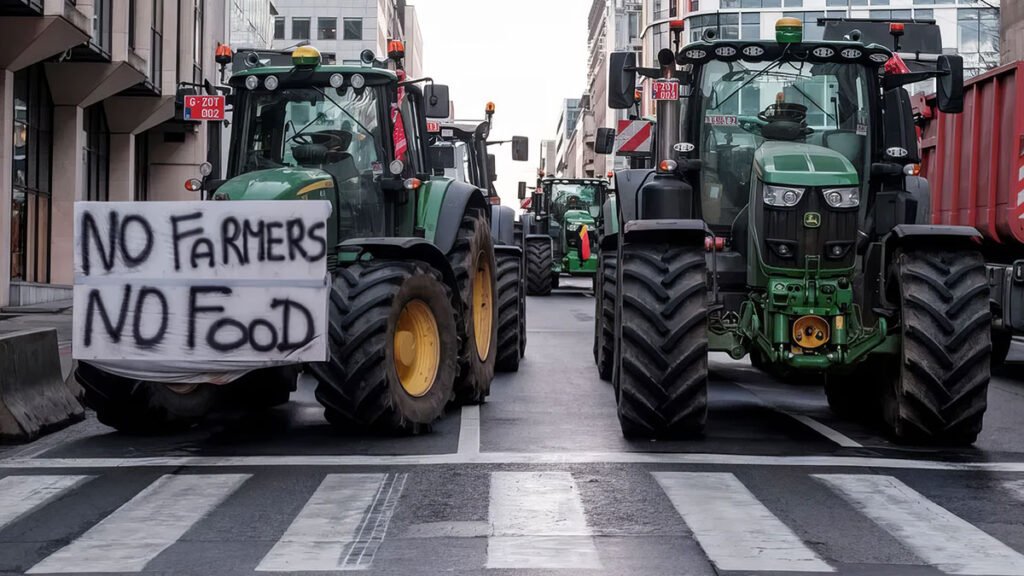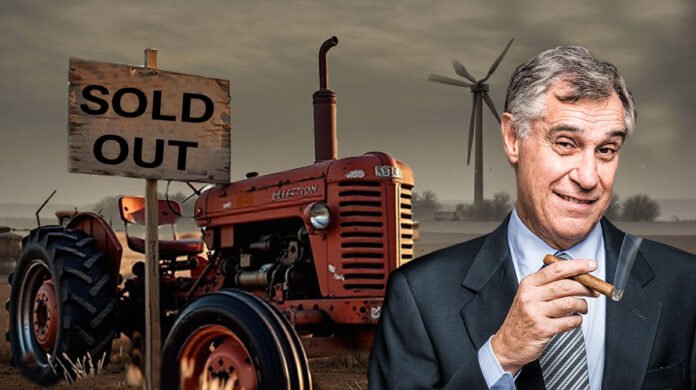Poland, Hungary and Slovakia Defy Brussels as Ukraine Trade Deal Takes Effect
As the EU’s new trade deal with Ukraine comes into force, three member states, Poland, Hungary, and Slovakia, are openly defying Brussels by maintaining unilateral bans on Ukrainian imports. Their refusal highlights growing fractures within the bloc and the political risks of prioritising Ukraine’s economic integration over the livelihoods of European farmers.
The European Commission has declined to rule out taking the countries to court for breaching single market rules, which prohibit member states from introducing their own trade barriers.
“We see no justification for maintaining these national measures,” said Commission Deputy Spokesperson Olof Gill on Thursday, adding that Brussels would “intensify its contact” with the defiant governments. Pressed on whether infringement proceedings were being considered, Gill replied: “All options are on the table.”
National Sovereignty vs. Brussels Bureaucracy

Poland, Hungary, and Slovakia argue that the revised EU-Ukraine trade deal fails to protect their agricultural sectors from a flood of cheap Ukrainian grain and other farm products. These imports, initially allowed under emergency wartime measures in 2022, have depressed local prices and sparked protests among farmers across Central and Eastern Europe.
Poland’s agriculture ministry said its restrictions “do not automatically lift” under the new EU deal and will remain in force. Hungary’s Agriculture Minister, István Nagy, accused Brussels of “prioritising Ukrainian interests over those of European farmers.” Slovakia’s minister, Richard Takáč, said the so-called safeguard mechanisms in the agreement are “not strong enough” to protect domestic producers.
Brussels Hesitates: Politics at Play
Despite the clear breach of EU trade law, the Commission has so far avoided confrontation. Officials privately admit that hauling Poland before the European Court of Justice could sour relations with Donald Tusk’s newly re-elected, pro-EU government, something Brussels is keen to avoid. Going after Hungary and Slovakia alone would expose the double standard.
The updated deal, approved by EU states on 13 October 2025, replaces the temporary trade liberalisation introduced after Russia’s invasion of Ukraine. It gives Kyiv continued tariff-free access to EU markets for another four years, while adding limited safeguards for European farmers, though critics say these are far too weak.
A Warning for Britain

While EU capitals wrestle with the fallout, British farmers should take note. Post-Brexit, the UK has sought to align its trade policy with that of Brussels and Washington. The question now is how long before Downing Street opens the door to cheap Ukrainian imports under the same “solidarity” narrative.
Expect Keir Starmer and Rachel Reeves to argue, just as EU officials have, that such a deal would “bring down food prices” and “help rebuild Ukraine.” But the reality will be the same: a race to the bottom that undercuts British producers, drives family farms out of business, and leaves the nation dependent on foreign supply chains.
Meanwhile, multinational asset managers like BlackRock, which already has a hand in Ukraine’s reconstruction plans, will reap the rewards, buying up farmland, investing in Ukrainian agribusiness, and turning both Ukraine and the UK countryside into corporate cash cows.
The Bottom Line
Poland, Hungary, and Slovakia aren’t just defying Brussels; they’re defending their farmers. They see what’s coming, a neoliberal project dressed up as solidarity. Once again, the EU’s ideological obsession with market integration is being exposed for what it is: the subordination of national interest and food sovereignty to corporate power.
And if Britain isn’t careful, it’ll find itself in the same trap: cheap imports for the shelves, shuttered farms in the shires, and wind turbines where wheat once grew.
Support Independent Journalism Today
Our unwavering dedication is to provide you with unbiased news, diverse perspectives, and insightful opinions. We're on a mission to ensure that those in positions of power are held accountable for their actions, but we can't do it alone. Labour Heartlands is primarily funded by me, Paul Knaggs, and by the generous contributions of readers like you. Your donations keep us going and help us uphold the principles of independent journalism. Join us in our quest for truth, transparency, and accountability – donate today and be a part of our mission!
Like everyone else, we're facing challenges, and we need your help to stay online and continue providing crucial journalism. Every contribution, no matter how small, goes a long way in helping us thrive. By becoming one of our donors, you become a vital part of our mission to uncover the truth and uphold the values of democracy.
While we maintain our independence from political affiliations, we stand united against corruption, injustice, and the erosion of free speech, truth, and democracy. We believe in the power of accurate information in a democracy, and we consider facts non-negotiable.
Your support, no matter the amount, can make a significant impact. Together, we can make a difference and continue our journey toward a more informed and just society.
Thank you for supporting Labour Heartlands









